The Association of Dermatological Administrators and Managers (ADAM) requested that I put together a webinar on Medical Practice Security Breaches and how to mitigate the risk of a breach. With data breaches in healthcare organizations rising more than 30 percent year over year and with an increasing number of practices stating they’ve been breached in the past year, ADAM felt that this was a good time for additional education for its members.
Most of the breaches are the result of employees losing or having their devices stolen and other unintentional, but ill-advised, employee actions. In this webinar I discussed what to do in the case of a patient data security breach. I outline the steps that must be taken both from an operational and legal standpoint. Also, I discuss how to prevent a security breach in your practice.
Intel and McAfee invited me to speak at their FOCUS 12security conference in Las Vegas this year. This was my second year as a featured speaker.
My first session, Security in the Age of the Mobile Workforce and Mobile Devices, discussed the latest trends and protections for the mobile workforce, including managing multiple devices. I discussed how Security risks rise with the addition of more devices in the traditional office and in the teleworking and mobile workforce.
My second session, Achieving Real-Time HIPAA Security Compliance, covered how executives faced with HIPAA security compliance could use available tools and processes that enable real-time compliance. I covered some key security tools and technologies that can be used to architect a solution.
Cloud and the technologies that surround this concept has been a hot topic for the last several years. I developed a webinar for ExecSense, The Future of Virtualization, that examines everything that CTOs need to know about the most up-to-date virtualization technologies. I cover the best practices regarding the benefits and costs of virtualization as well as the most up-to-date techniques on how other CIOs are using virtualization at their companies.
I also lay out a roadmap of current and future cloud virtualization paths and how to stay on track; not become hijacked by a single vendor situation; plan infrastructure growth confidently and a scorecard of future winners and losers and how to chosing dead-end providers.
I had an interview with Tom D’Auria on the IMI Tech Talk radio program to discuss how technology is affecting job searching. This was broadcast in New York and Phoenix Arizona markets on KFNX 1100.
I cover the pros and the cons of using Monster, Dice, LinkedIn etc. Also, I cover the trials and tribulations of Enterprise resume entry systems and how individuals can tweak their resume to rise to the top of the pile. I touch on why face-to-face networking is still the most critical aspects of finding a new gig, regardless of the outlying technology available today.

September 2012 NCHICA Conference. I Gave a Talk on Managing Privacy and Security Risks with Mobile Devices.
Intel and McAfee invited me to speak at the September 2012 NCHICA Conference on the topic of managing privacy and security risks with mobile devices. I worked with representatives of both firms to lay out overall strategy and discuss my experience with clients on this topic.
The session explored how to safely embrace and benefit from consumerization of mobile devices and related trends. My partners and I covered the key healthcare trends around consumerization of mobile devices, the privacy and security risks they drive, and practical strategies and best practices for managing these risks. These include a proactive approach that includes policy, risk assessments, safeguards, and security awareness training that enables healthcare organizations to safely embrace and benefit from this major trend.
The consumerization and the Bring Your Own Device (BYOD) trend has proven to be a disruptive technological force in Enterprise IT. Data Security in this era is paramount. ExecSense requested that I create a webinar, Securing Data in the Age of Bring Your Own Device, that examines the best tips, techniques and policies for securing data in light of this trend.
I provide answers to the ten questions most asked by CIOs, CEOs and GCs about the murky legal waters surrounding BYOD; can e-discovery be conducted on employee owned devices; do employment contracts need to be amended; firing employees based on information contained on their BYOD and a number of other equally uncharted scenarios.
In ERP Investment Strategies for CIOs, I cover high-level strategies on how other CIOs are successfully evaluating, negotiating and implementing ERP solutions for their company. The demand and usefulness of Enterprise Resource Planning software (ERP) has waxed and waned. However, with the hyper-competition facing the enterprise and the era of “Big Data”, these systems are once again playing a more important role.
Since a solid contract is critical for ERP success I cover the top 10 traps of ERP contracts you must avoid, and how to get the most out of your negotiations and how to separate marketing hype from actual performance and get useful references from “real” users of the proposed system.
Big Data and it’s management has become a critical issue for the C-suite in the enterprise. I was tapped by ExecSense to develop a presentation on this topic. CIO Tips, Techniques & Best Practices for Enterprise Data Strategies covers the most effective way(s) that your enterprise’s raw data can be managed and mined.
The webinar covers important tips, techniques and strategies that CIOs can use to ensure that once critical data has been collected, it can be disseminated in a manner and form that makes it useful to all areas of the business, not just improving IT throughput. I also answer the ten questions most asked by CIOs about justifying the cost of BI software and how to make the promise of BI a reality.
In a variety of my presentations, I have railed against the poor Vendor Management practices that I have found across my clients. My
Vendor Management Skills, Tips & Techniques for CIOs webinar covers the most effective vendor management skills, tips and techniques for technology executives. I discuss what other CIOs have found most effective for vendor management and take a look at several high-level action plans for establishing an effective vendor management practice.
Topics include the most important tips, techniques and strategies that CIOs can use to build a two way trust and a two way technical expertise and exchange to establish a working relationship that will support both enterprises. Also answers to the ten questions most asked by CIOs about altering contracts and when to involve legal counsel, how to get the truth from vendor references and other due diligence must haves.
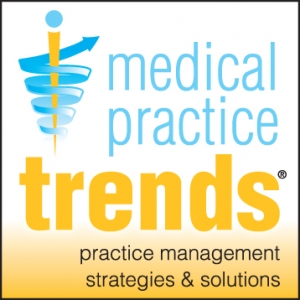
June 2012 Podcast on the Topic of ICD-10 and How its Implementation will Affect Healthcare Providers.
ICD-10 and its implementation is a cause of great concern and levels of effort within the healthcare industry. Dr. Pollack requested that I chat with him (Podcast 45) on the technological and business aspects of the ICD-10 push.
I cover the current schedule for ICD-10 deployment and what impact will the new coding have on revenue cycles. Also I talk about certified EMR/EHR systems and if they provide an advantage in the ICD-10 coding race for providers. Finally I discuss how ICD-10 and its implementation will impact smaller healthcare providers.

June 2012 Webinar on People Skills, Tips & Techniques for CTOs. Avoid Common Mistakes that Can Damage a Team.
This session, People Skills, Tips & Techniques for CTOs, examines the most important ways for CTOs to communicate effectively with their team, get everyone motivated towards common goals, and get the most out of individual team members. This presentation will allow participants to gain an understanding on what works best for other CTOs when setting individual and team goals, dealing with the five most dangerous HR-related situations as an IT executive, what to look for when hiring new employees, and other tips and techniques to become an expert talent manager as a CTO.
Topics including learning about common mistakes that can backfire when it comes to team morale; coping with “layoff survivor” syndrome; identifying appropriate motivators based on Maslow’s hierarchy; and why most executive support teams fail at strategic planning.
I was contacted by Angel Tuccy, host of the Experience Pros Radio Show in Denver, Colorado. I had done a pitch on Personal Branding for her program and so she scheduled a chat with me about the topic. The show aired on June 28th 2012.
I discuss what Personal Branding is and how it applies to professionals. Also I discussed some of the key components for establishing your Personal Brand. I gave a high level tips for establishing and maintaining a blog. I talked about Social Proof, what it is and how it can apply to your career or business branding efforts.
A lot of has been written about content marketing so I covered how this concept applies to Personal Branding. Also, since Social Media is on everyone’s mind, I mention how it fits into the Personal Branding picture.
On a final note, I discuss what other avenues are available to establish a personal brand and how you can gauge the effectiveness of your Personal Branding campaign.
I have written and presented on the topic of Governance, Risk and Compliance (GRC) quite a few times. I was asked by ExecSense to put together another webinar on the topic entitled Establishing an Effective Culture of Governance as a CIO to address the issue of GRC and its impact on CIOs.
The webinar includes a comprehensive examination of the corporate governance principles, legal issues, and technology considerations most relevant to CIOs. It also addresses the most significant legal issues and developments that CIOs need to understand, with a special focus on the Dodd-Frank Act and other laws and regulations that apply to both public and private companies
I also cover, at a high level, the best practices of GRC and how to help your organization comply with corporate governance requirements in various technology-related scenarios. This includes the top 10 questions CIOs need to be ready to answer regarding corporate governance from their CEO and board of directors.
Intel approached me to jointly prepare a webinar on healthcare, consumer and IT/security trends and the risks they drive for HIMSS. Entitled, Embrace Healthcare Change Safely:Practical Strategies for Security Risk Management, the event was published in May 2012. I fortunate to be able to work with senior representatives of McAfee and Intel in preparation for the presentation.
The webinar highlighted practical strategies to manage risk that included best practices to maximize limited budget available for privacy and security. Other topics included solutions for implementing effective privacy and security practices and the importance of user experience, performance and compliance in security risk management.
ExecSense tapped me to to deliver a session on project management tips and techniques for CIOs. The webinar Project Management Techniques for CIOs covers the PM skills and experience that are core to an executive’s skill set. I also discuss how these skills play an even more critical role on the technology side of the enterprise.
The webinar includes how to revamp the way CTOs strategize and organize their approach to new technology projects, project teambuilding, specific ways to inspire team members to reach and exceed key project goals. Also I discuss how to improve budget forecasting, and the 10 questions most asked by CIOs with respect to how they can improve their project management skills.
I had an interview with Tom D’Auria on the IMI Tech Talk radio program to discuss the upcoming release of Windows 8 and what it means for the consumer and corporate market. This was broadcast in New York and Phoenix Arizona markets on KFNX 1100.
The interview covered how Windows 8 fits into Microsoft’s cloud strategy, how it will help or hurt Microsoft’s fortunes in the tablet market and of course all the new bells and whistles that it will sport.
Finally, I spoke with Tom on how I believe the marketplace will treat Windows 8, steps Microsoft can take to avoid another Vista boondoggle and wrapped up with some final thoughts.
Governance, Risk and Compliance are big topics of increasing importance in the enterprise, especially in the executive suite of IT. This webinar, “What CTOs Need to Know About Corporate Governance Best Practice“, examines everything that CTOs should know about corporate governance, as it applies to both public and private companies, in order to be a more effective advisor for their organization.
This webinar will allow CTOs to update their knowledge on corporate governance, be informed about the most significant corporate governance issues currently impacting CTOs, and the technology departments of companies, and learn best practices to help ensure that your organization is complying with its corporate governance duties, especially from a technology and privacy standpoint.
In this webinar for ExecSense,”CIO Best Practices for Regulatory Compliance“, I cover the most up-to-date compliance issues that are impacting CIOs and their companies this year.
Compliance management is increasingly impacting IT and this presentation brings CIOs up-to-speed on important new compliance measures, new ways CIOs are conducting compliance audits, and best practices for how other CIOs are handling compliance at their companies.
I review the most frequently asked questions by CIOs about Dodd Frank and SOX plus PCI, NERC, and HIPAA. Also, I discuss specific case studies of compliance audits and provide practical tips and guidelines of managing a compliance practice.
You can’t pickup a trade magazine these days without tripping over multiple articles on the topic of consumerization or the shift consumer devices into the corporate environment. Consumerization is particularly prevalent in the healthcare space as caregivers and doctors bring their iDevices and Androids into the corporate environment.
In (Podcast 36) with Dr. Pollack, I discuss the roles consumer devices can play the medical practice settings and which app platform is leading the market. Also, I discuss how to ensure that these devices are secure and cover the concept of Mobile Device Management and the available software on the market.
AtTask requested that I do a webinar for them on “Real World Risk Management“. I have worked with the AtTask and TalkingWork folks before on a Project Management concepts podcast. So I was happy to craft a webinar that took a down-to-earth approach at discussing effective, real world project management tips for doing risk management the right way.
The webinar covers the difference between project risks and issues, common risks “in the wild” and how to setup an effective Risk Management program. Also, I cover how to sell the concept of Risk Management to the PMO as well as managing the expectations of leadership regarding the risk management program you just put in place.
With information security concerns weighing more heavily on healthcare providers minds, practitioners are tempted to spend significant dollars on technological solutions to potential security problems. However, not all technology investments are equal and some can just be wastes of resources if the organization cannot support them effectively.
In Medical Practice Trends (Podcast 34) I discuss with Dr. Pollack, whether additional technology expenditures are wise or if better information security processes and practices can address some of the more pressing issues that face providers today.
I spoken on the topic of CTO before for ExecSense. My last presentation for them on this topic was “CTO Best Practices for Advising Your CEO & Board of Directors on Technology-Related Matters“.
In this presentation, “How to Become a Better Leader as a CTO“, I cover how CTOs are adapting their management/leadership styles to the current economy and what they are doing to reach or exceed the goals of their team/company.
I also cover the most effective methods successful CTOs use to build high-performance teams that power projects to successful implementation, incentives that keep teams on track; road mapping through team consensus and conflict resolution, and learn to optimize time, money and resources by putting the right people on the right projects
I have several client relationships within the healthcare industry and information security is becoming more of a topic of conservation. This is due to the ever increasing regulations that the industry is finding itself shouldering and the potential penalties involved if patient data is compromised.
Federal Electronic Medical/Health Records mandates are being pushed on an industry that has traditionally been slow adopters of technology, which forces significant behavioral and process change. These changes are encouraging bad actors to target these institutions; a challenge that is overwhelming the senior leadership at both large and small medical practices.
I speak with Dr. Pollack of Medical Practice Trends on the subject of security and healthcare in (Podcast 32). We discuss why the uptick in threats to healthcare and what practices can do to mitigate their risk.
Risk, what it is, how to manage it and who is responsible for it is a trending topic in the rarefied air of senior leadership. With the CIO role moving quickly toward the keeper of the keys to the enterprise Governance, Risk and Compliance (GRC) practice, understanding the core principles and how to apply them is a critical.
I cover a portion of GRC in this webinar for ExecSense entitled “Conducting an IT Risk Assessment at Your Company: CIO Best Practices, Tips & Techniques“. I discuss the latest security trends, risk questions you should pose to your vendors and partners, case studies and an outline to get your Risk Assessment practice off the ground.
I have previously presented on Risk topics for ExecSense including a presentation in June 2011 entitled “Risk Management Tips & Best Practices for CIOs.” I covered the Governance, Risk and Compliance (GRC) components of Risk Management. Also, I provided the initial steps that CIOs and their organizations should take when developing a Risk Strategy and how that becomes input for an effective Enterprise Resource Management Program.
November 2011 Webinar on CTO Best Practices for Advising Your CEO & Board of Directors on Technology
As IT shifts from pure play technology to business partner\driver, IT senior leadership will have to quickly learn how to plug technologist-speak into the profit, risk and compliance world of the C-Suite. Since I have provided consulting services for C-level leadership in multiple organizations, ExecSense asked me to create and lead the webinar on “CTO Best Practices for Advising Your CEO & Board of Directors on Technology-Related Matters“.
In the presentation I cover what every CTO should know about the functions of Boards and what role the CEO plays. I discuss how the CTO should cultivate relationships in the board and within the various lines of business throughout the organization. I also list the top 10 tips for interacting with the CEO and Board including, refining the message, knowing your desired outcome and how to ensure your presentation aligns with the corporate strategic plan.
One of the largest and most risky IT investments an organization can make is the purchase of Enterprise Resource Planning (ERP) software. I have been part of multiple ERP throughout their lifecycle. So, ExecSense tapped me to create and present a webinar on the topic entitled “What CIOs Need to Know Before Negotiating or Signing an ERP Agreement“.
The presentation includes tips on the best ways to negotiate terms for an ERP agreement, including comparing bids, establishment of a negotiating target and strategy, how to do a contract review and how to leverage other vendors bids. Also, I cover the 10 questions CIOs need to be ready to answer from their CEO, CFO and legal counsel regarding the deal, the 4 red flags in an ERP deal and case studies of other ERP deals gone wrong and why.
I was invited to speak at the McAfee Focus 11 security conference in Las Vegas this year. I discussed the topic of “Achieving Continuous Compliance within Secure Healthcare Environments” with an audience of healthcare business and IT professionals. For a more detailed description go to the Public Sector Track: Cutting-Edge Government Security section.
Focus 11 is a conference for security professionals worldwide to gather together and discuss the latest trends in compliance, risk mitigation and security strategies.
The Payment Card Industry Data Security Standards (PCI DSS) are a critical topic within the Financial industry. However, based on experience with clients, these guidelines fall through the cracks based on more pressing regulatory concerns from HIPAA or the FDA.
In this webinar for ExecSense, “PCI Compliance Best Practices for CIOs“, I cover what questions all CIOs should ask their credit card systems vendors and the greatest pitfalls and mistakes made by CIOs in conducting GAP analysis. Also I provide a high-level overview of the the 12 PCI security requirements and how they affect your infrastructure. Finally I walk through specific case studies and their relation to PCI non-compliance.
I have had some experience with the Health Information Trust Alliance (HITRUST) organization and I am part of their advisory committee on Mobile Device security. Dr. Pollack and I had previously spoken about this topic and decided that a discussion (Podcast 28) would be a good idea, since many in the medical profession seemed unaware of HITRUST.
HITRUST’s primary claim to fame is their Common Security Framework, which ties most if not all of the healthcare industry’s regulations into a semi-neat bundle. From there it maps common security practices to those regulations and guides you through all the various redundancies and minutiae to ensure you get as close as possible to being in compliance with the multitude of regulations.
ExecSense leadership called on me to lead a webinar on “Damage Control Tips, Techniques & Best Practices for General Counsel“. I have an extensive contingency planning background and have consulted with senior leadership on this topic at multiple clients.
The webinar covers what every general counsel should be prepared for in a legal crisis; the 5-step checklist for general counsel; the greatest pitfalls and mistakes made by general counsel in shepherding a company through a legal or moral crises.
I also touch on what are the statutory or common law arguments for limitation of damages, working with PR experts to mitigate damages and the education of the public or customers/clients.
Dr. Pollack invited me back to discuss the increasing burden of HIPAA 5010 and ICD-10 compliance in (Podcast 25) for Medical Practice Trends. Federal regulations require healthcare organizations to be compliant by January 2012 and October 2013 respectively
HIPAA 5010 is the new standard for EDI transactions and paves the way for the larger fields size required for ICD-10. The ICD-10 code set will allow far more granular tracking of medical diagnoses and procedures. The previous code set, ICD-9, only contained 17,000 codes while ICD-10 has over 155,000.
I gave a webinar for ExecSense in September on the topic of “Understanding the Risks of Cloud Computing as a CIO“.
This presentation ties in well with the articles I have published or contributed to on Cloud Computing. These have appeared in Infosec Island and PC Today. I have also developed and taught multiple webinars for ExecSense on the topic of Risk Management.
Dr. Polack asked that I provide some commentary (Podcast 22) on the trend of smaller physician practices moving toward the “Concierge” model of serving patients.
The Concierge Model can take the form of a doctor’s patients paying a yearly fee for his or her services or a pay-as-you-go method. Patients with insurance plans or on Medicare and Medicaid are avoided.
This trend, while still small, is gathering steam due to the large amount of regulatory compliance costs that are impacting physicians. This includes HIPAA, HITECH, ICD-10 mandates that will increase costs and reduce compensation especially for Medicare and Medicaid patients.

August 2011 Podcast with Dr. Polack on Health Information Exchanges and How Practices Can Leverage Them.
I have collaborated with Dr. Polack again (Podcast 21) and we discuss Health Information Exchanges (HIE) and how Physicians can leverage these for technology.
This is a timely topic as large healthcare providers are struggling to meet “meaningful use” requirements for Electronic Medical Records.
Previously I contributed to an article published in Medical Office Today entitled “Can You Leverage a Hospital for Technology?” The piece delves into the topic of small medical practices partnering with large healthcare providers in order to leverage Heath Information Exchanges and Electronic Medical Records solutions.
I have worked extensively with ExecSense in the past on a variety of topics. They have requested that I develop a webinar on the topic of role of the CIO in protecting Corporate Intellectual Property (IP).
The webinar is titled “CIO Best Practices for Managing Your Company’s IP“. This presentation ties into the multiple Risk Management sessions I have created and presented for ExecSense.
The webinar covers maintaining control of your IP through legal, physical, and digital protection. This includes a review of Corporate Governance, Risk Management, Outsourcing, Information Security and Data Loss Prevention best practices.
The Food and Drug Administration (FDA) recently released their Medical Device Data Systems (MDDS) regulations. These new regulations cover the usage of networks, mobile devices and computing systems and how they are impacted by attaching them to medical devices.
The MDDS guidelines now stipulate that standard computing devices, storage and networks can become a “medical device” in the eye of the FDA and will be governed as such. However, the FDA has noted that pure play medical devices will be held to higher standards.
I speak with Dr. Polack (Podcast 20) on the MDDS topic and discuss how it will impact physician practices.
I was approached by representatives of the Tech Talk with Craig Peterson show to do an interview on Personal Branding with Social Media. This fits nicely with my SpeedBriefs webinar on “How to Start a Blog: Creating a Personal Brand”. Plus I have written quite a few articles on Personal Branding that touch on the Social Media aspect as well.
Tech Talk is a popular ClearChannel radio program that airs in the Boston market.
I was contacted by the editors at ExecSense and they have requested I develop a webinar on the topic of “Disaster Recovery & Business Continuity Tips, Techniques & Best Practices for CIOs“.
I have written and contributed to multiple articles on disaster recovery and business continuity. It is one of the most overlooked areas in most organizations, based on my consulting experience. I have also touched on this topic before in other ExecSense webinars. The most recent was “Risk Management Tips & Best Practices for CIOs“.
The editorial board at SpeedBriefs has chosen me to lead a webinar entitled “How to Start a Blog: Creating a Personal Brand”. The webinar has been recorded and is scheduled for publication.
I have written quite a few articles on personal branding and the methods I use to establish my brand. This will be an interesting topic for me to cover and I am looking forward to it.
I will update the link when the webinar is published on the Speedbrief website.
ExecSense contacted me to create a webinar on “The 7 Key Professional Skills that COOs Need to Master“. I covered the key operational, strategic and communications skills one must possess to be an effective Chief Operating Officer. I also discussed how the COO role differs for each organization and concerns itself with more than Operations.
I wrote about a portion of the strategic skills topic in a Processor Magazine article entitled “Mapping the IT Capability Maturity Framework” (IT-CMF).
I recorded a podcast with Dr. Peter Polack on the the topic of Mobile Devices and their “Apps” in Medicine recently. The podcast, (Number 13), covers the penetration of mobile devices into the healthcare environment and the 70,000+ medical Apps that run on them.
I covered this topic a bit in an article I contributed to for the Progressive Physician. The article, “Top iPhone & iPad Devices for Physicians“, touched on the recent trend of iDevices and the associated applications making in-roads into medical practices.
ExecSense approached me to present a webinar on “What CIOs Need to Know Before Hiring a Consultant“. I discussed the key strategic, legal and financial considerations that CIOs need to weigh when hiring consultants. I also discussed the variations between consultants and contractors as well as discussing the pros and cons of Managed Service Providers.
This is an interesting topic for me since I have started and run consulting firms in the past. Also I have written several articles on consulting. My latest was a collaboration with Dan Tynan for an InfoWorld Article entitled “Seven Dirty Consulting Tricks (and How to Avoid Them)“.
ExecSense engaged me to provide a webinar on “Risk Management Tips & Best Practices for CIOs.” I covered the Governance, Risk and Compliance (GRC) components of Risk Management. Also, I provided the initial steps that CIOs and their organizations should take when developing a Risk Strategy and how that becomes input for an effective Enterprise Resource Management Program.
I gave another webinar for ExecSense that is complementary to this topic back in March entitled “What Do Risk Management Executives Need to Know About Outsourcing in 2011“.
I speak again (Podcast 10)with Dr. Polack and we discuss the topic of Electronic Medical Records (EMR) and how they impact physician’s practices marketability. We discuss the financial incentives, regulatory requirements and pitfalls doctors face with EMR implementations.
This podcast aligns with an article in the April 2011 issue of Medical Office Today to which I contributed. Entitled “Does EMR Make Your Practice More Marketable?” it touched on the patient care, business and technological impacts of an EMR solution.
I have had the privilege of working with Dr. Peter J. Polack of Medical Practice Trends on a series of podcasts recently. This particular podcast (Number 8) covers, at a high level, the recent changes in the enforcement of the HITECH Act and the impact on medical practices.
I discuss some of the latest penalties to be handed down by Health and Human Services (HHS) and strategies to mitigate the risk of a Protected Health Information (PHI) breach.
ExecSense asked me to present a webinar entitled What CIOs Need to Know About Mobile Device Security. I discuss the most effective best practices and policies for chief information officers to manage their organizations’ mobile security risks.
I cover easy-to-implement tips and techniques for achieving mobile device security. This includes tips for choosing the right vendors, how to set and enforce policies mandating the use of device encryption and authentication on mobile devices, tips for utilizing remote wipe capabilities, how to limit the installation of third-party applications, how to set up unique firewall policies, tips for using intrusion prevention software and how to safely utilize Bluetooth capabilities.
ExecSense tapped me to present a Webinar for Risk Management Executives. The topic was “What Do Risk Management Executives Need to Know About Outsourcing in 2011“.
The presentation covers a broad array of critical business practices and risk points that need to be considered when outsourcing business or information technology processes.
TalkingWork is a semi-monthly podcast that covers all aspects of employment and project management. They are affiliated with AtTask, a Project Management products and services company.
I speak with Ty Kiisel and Raechel Logan (from the 29 minute mark to the 55 minute mark) on the importance of communication in Project Management. Also I discuss my “Three P’s of Project Management” article and how I apply these concept during my consulting engagements.
I was interviewed by ReachMD, a medical news program for healthcare practitioners on XM Radio. I spoke on the topic of information security and physician practices. I touched on how physician’s can interact with their information technology providers to get the best service possible.
This interview was prefaced by my contribution to an American Medical News article on Physician practices and information security, entitled “Practice IT Systems Require Scheduled Checkups”.
I spoke at the PMI Central Virginia Chapter on “Strategies for Effective Culture Change“. I discussed the impact of a dysfunctional culture on an organization. Also, I presented strategies to create a positive shift in an organization.
A positive culture, with efficient processes, is a means to gain additional profitability for an organization.
I gave a talk at the PMI Central Virginia Chapter called “Marketing Project Portfolio Management. Selling a Methodology to a Skeptical Organization“. I discuss the frameworks behind Project Portfolio Management and a Project Management Office.
I cover the techniques that can be used to market these concepts to senior management and how to break through the standard organizational roadblocks that occur and effective ways of breaking through them. Also, I discuss some of the basic PPM and PMO structures.
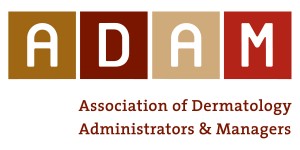
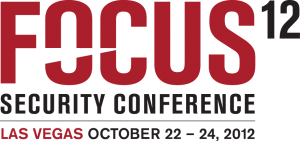
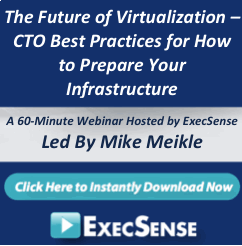
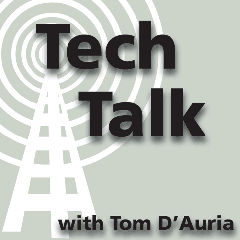
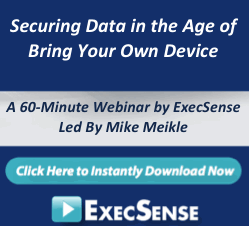
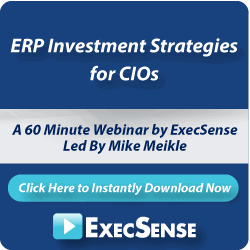
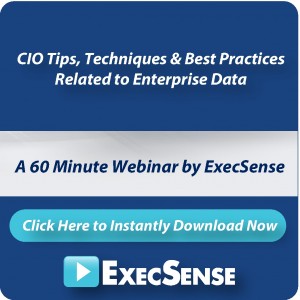

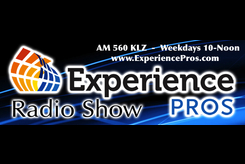

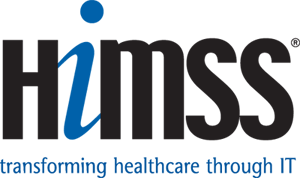

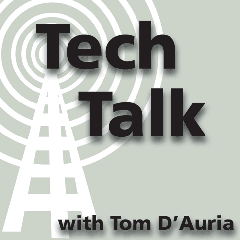




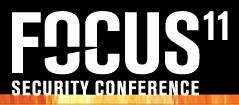




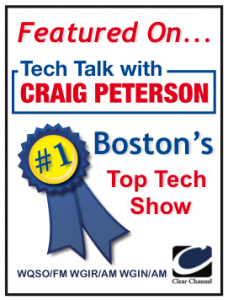






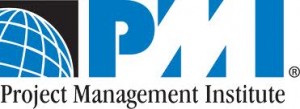
Leave a Reply